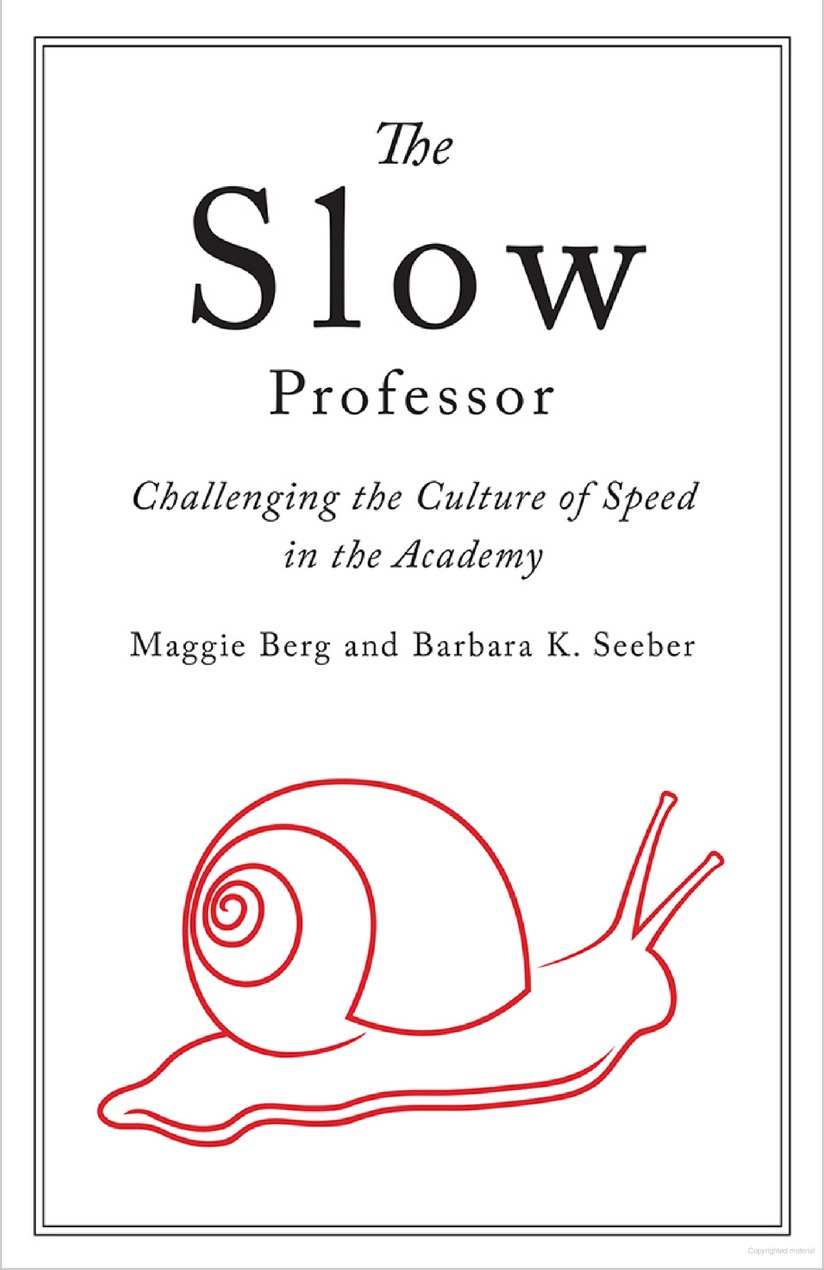
Book Review: “The Slow Professor”
“The Slow Professor” is a book by Maggie Berg and Barbara K. Seeber that critiques the culture of speed and productivity in academia. The authors argue that the corporate university has created a system that prioritizes quantity over quality, causing burnout and stress among professors – who does not recognize this critique?
The book suggests a slow approach to teaching and research that emphasizes reflection, collaboration, and community-building. The authors propose that academics should focus on cultivating deep relationships with their colleagues and students, and reimagining their roles as mentors rather than taskmasters.
Here are some of my comments and criticisms on the book:
- The book is good in highlighting how the corporate university has become an awful place for professors. The authors describe the intense pressure and workload that academics face, which can lead to burnout and a lack of engagement in their work.
- The book is written from an Anglo-Saxon perspective, which may limit its applicability to other contexts. For instance, some of the advice on collaboration and research may not be feasible for scholars in the Global South, who face different structural and systemic barriers.
- The criticism on online meetings and conferences may feel extremely privileged, as these technologies have enabled many scholars in the Global South to participate in academic events they may not have been able to attend otherwise. It is important to recognize that not everyone has access to the same resources and opportunities, and this needs to be taken into account when discussing ways to address the problems in academia. My critique is probably even more true after the COVID-19 pandemic, as many scholars in the Global South struggle to get a visa to travel to Europe or the US for conferences due to the visa delays after the pandemic, and struggle with low funding and expensive airfares (and the monstrous carbon footprint of traveling for work).
- I don’t think it is enough to show up to class with a better mindset to solve the problems in the corporate university. While the book acknowledges the systemic issues in academia, the solutions it proposes focus on individual actions rather than structural changes – especially in the chapter on teaching.
- Some of the advice on collaborative research and meeting in the hallways may be difficult for those of us who are neurodivergent. The book is geared towards neurotypical people and may not be inclusive of all members of the academic community. The book also does not address any of the issue of minorities in academia – while minorities are most often hit by further neolibbing of the university.
- The book does not address how those in precarious positions or adjunct professors can be slow professors. The authors assume a level of job security and autonomy that is not available to everyone in academia. How can an adjunct professor slow down to build meaningful relationships with our students if they get a course load of eight courses per semester?
Overall, “The Slow Professor” is an interesting book that highlights the problems with the culture of speed and productivity in academia. However, the book has a very privileged take on academia, and its advice may not be applicable to all scholars, especially minorities, those in the Global South, and those on precarious contracts. I’d love to read a follow-up that takes a more intersectional approach that takes into account the diverse experiences and challenges faced by different groups in academia.
All in all, my overall rating for the book is 3/5.



